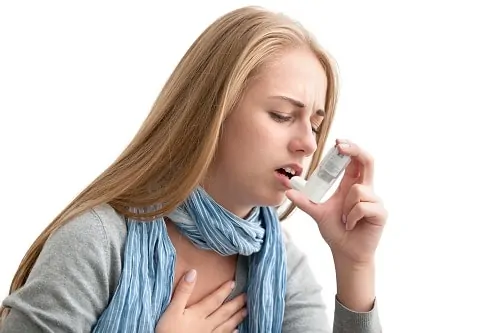
Asthma affects nearly 24 million Americans and is a serious medical condition that, if not treated proactively, can lead to trouble breathing, wheezing, and sometimes, even death. But at my El Paso dental office, we also know it may have a negative effect on oral health.
What the Research Says
There’s been a long-standing belief that those with asthma have an increased risk for oral health problems, including cavities. Since many asthma sufferers tend to also be mouth breathers, the chance for dry mouth is greater. And dry mouth is a concern for your El Paso dentist. When saliva production decreases, its ability to properly rinse away germs and bacteria diminishes, and the likelihood of developing cavities goes up. Even if mouth breathing isn’t a factor, common asthma medications can also dry out the mouth and decrease saliva flow.
Cavities aren’t the only thing that has been linked with asthma. Asthma sufferers also have a higher chance of developing gum disease. According to a study conducted by the Journal of Periodontology, those surveyed who had gum disease were five times more likely to also have asthma. This is especially concerning because of the seriousness of gum disease. Gum disease has been linked to whole-body health issues such as heart disease, more respiratory problems in addition to asthma, and some cancers including kidney, pancreatic, and blood.
What Can You Do?
Whether the connection between asthma and cavities is true or not, there are some simple things you can do to ward off any negative side effects of asthma or asthma treatments.
As always, the best way to prevent cavities is to brush twice a day, floss once a day, and see your dentist regularly. We’re always accepting new patients at my El Paso dental office, so if it’s time for your checkup, give us a call to schedule an appointment.
Accepting patients from El Paso, Las Cruces, Cloudcroft.
He was excellent and pulled my wisdom tooth in less than 2 min. w/o chipping it. The service was good too.
Great dentist experience! While they do take my insurance, unfortunately, they are not part of my network, however, I liked them so much I will continue to see them.
We were very impressed with the helpful and friendly staff at this dental office.
I was very impressed and thankful with the service provided.
I’m 60 years old and I hated to go to the dentist, and put off going for a long time. But let me tell you Dr. Rizk is the best dentist I’ve ever had. I would of gone years ago. A no pain Dr. – thank you!
I frequently talk to my patients about the different types of dental crowns available to restore their teeth. Understanding the different crown materials available helps you make an informed decision about your dental care. Let me share my professional insights about your various crown options and help you determine which... Read More...
As a dentist practicing in El Paso, I often discuss dental crown cost without insurance with my patients. I understand that cost considerations play a significant role in dental treatment decisions, and I believe in providing transparent information about pricing and payment options. The dental crown cost without insurance typically... Read More...